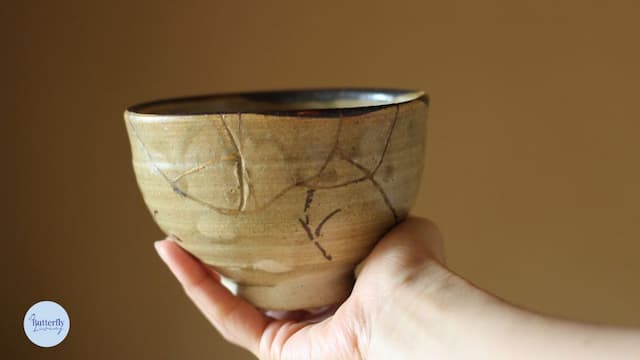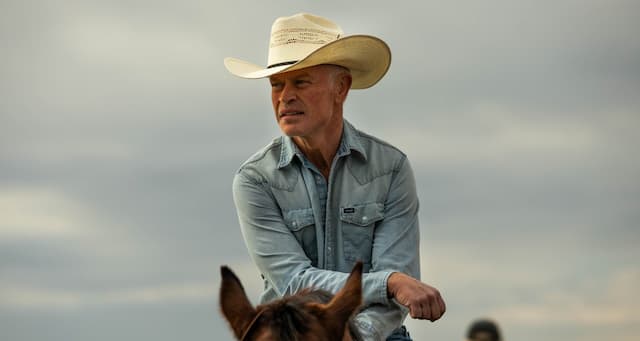5 Helpful Tips on How to Make Good Friends and Keep Them

I love to talk and make friends. And just as I work on skills to improve my communication, it is important to work on how to make good friends and keep them.
After an exciting day of kindergarten, my son jumped into my arms and said, “Momma, I made a good friend today!”
As an overjoyed parent, I wondered did he really understand how to make good friends and how did he determine that his new friend was good?
Good friendships are supportive connections that involve mutual knowledge, esteem, affection, and respect along with a willingness to help out in times of need.
That sounds like a fancy definition but my son seemed to figure out the secret of how to make a good friend. When enjoying special time with a good friend it is easy to understand why making and keeping friends is so important.
In the gospel of John, Jesus declares the ultimate good friend test,
“Greater love hath no man than this, that a man lay down his life for his friends.”
And laying down His life is exactly what Jesus did for us, giving us an amazing model of friendship.
How to be a Good Friend
In order to make good friends, we have to learn how to be a good friend. We make a lot of friends in a lifetime for different reasons or seasons, but to make good friends and keep them, takes effort.
The first step on our journey to be a good friend is to be whole and complete alone and to understand our identity and purpose.
It is hard to make good friends when your personal quest for love and belonging threatens to overwhelm a potential friend.
An identity rooted in Christ quenches our deepest craving for connection primarily through our relationship with Jesus. We are then able to function healthily in other relationships.
Paul J. Meyer created a wheel of life that is widely used to help people assess balance in life. When we take time to examine the areas in our life that are important such as finances, career, leisure, family and friends, spirituality, and health, we can determine which areas are weak or out of balance.
It has been hard for me to maintain any type of healthy relationship if I didn’t invest in my own personal growth.
A strong identity in Christ is where we start. From a place of confidence in God’s love for us, we can address the areas of our life that need attention and transformation.
Good friends are very important, but can never fill the hole in our souls. They cannot complete or fulfill us. That is God’s job. Relationships complement and affirm our ongoing growth. If our expectations are unfair we will struggle to learn how to be a good friend and will drive others away.
Balance is an ongoing exercise but if we are intentional and on purpose, we will be more available and understand how to be a good friend.
The Importance of Good Friends
We live in a culture where many of us suffer from the loss of the quality and quantity of friendships. But our desire for friends will never diminish. It is how we are wired to be connected to others. The importance of good friends in life cannot be overstated.
Even Jesus had good friends He depended on, traveled with, and enjoyed.
“Jesus went off with his disciples to the sea to getaway. “
Mark 3:7 MSG
Good friends enhance our sense of happiness and overall well-being. Studies have shown that strong friendships improve our health and longevity. Conversely, it has been shown that loneliness and lack of friends are linked to an increase in disease and higher mortality rates.
For children, research has shown that in the sequence of emotional development friendships come after parental bonding. In the period between the end of childhood and the onset of adulthood, friendships are often the most important relationships in the emotional life of a child. They can often be more intense than relationships later in life.
Although we know friendships are important in our lives, most of us did not get trained on how to be a good friend. Much like motherhood, there are not many formal classes on the subject of friendship even though it is one of the most essential ingredients of a joy-filled, content life.
Positive Effects of Friendship
The positive effects of friendship are endless. It is worth investing in how to make good friends because it makes life better. Here are some of the life-changing benefits good friends offer:
- Ignite Joy and Laughter
“There are some people in life that make you laugh a little louder, smile a little bigger, and live a little bit better.” Unknown
“It’s funny you meet these people and they make you laugh and they give you hope and they make you realize that there is so much more to life and when you’re with them you forget how empty you were before.” Unknown
- Give and Restore Hope
“Some people arrive and make such a beautiful impact on your life, you can barely remember what life was like without them.” Anna Taylor
- Share Burdens
“Anything is possible when you have the right people there to support you.” Misty Copeland
- Supportive to Mind, Body, and Soul
“A sweet friendship refreshes the soul.” Proverbs 27:9
“Anyone can show up when you’re happy. But the ones who stay by your side when your heart falls apart, they are your true friends.” Unknown
- Help us Grow
“The most beautiful discovery true friends make is that they can grow separately without growing apart” Elizabeth Foley
What Qualities Make a Good Friend?
Strong friendships are not based on location, interests, or time spent together, although these factors contribute to a good friendship.
What qualities make a good friend? mutual love, respect, value, and a heart connection. Good friends are rare and treasures to be cherished.
There are numerous qualities that I look for when making a good friend. Here are twelve important qualities to work on and to look for that may help direct your efforts on how to make a good friend.
12 Qualities that Make a Good Friend:
- Good friends value their friends for who they are, shortcomings included! When we value someone we appreciate their worth, importance, and usefulness despite their quirks or mistakes.
- Good friends Forgive often. When we forgive we let our friends off the hook for offenses whether they realize they have offended us or not.
- Good friends have healthy expectations. Expectations are silent friend killers when left unmanaged. Carefully evaluate and manage what your expectations are from good friends.
- Good friends show love and self-control. To love is to sacrifice and control what we want for the sake of the other person and the health of the friendship.
- Good friends are honest. When we are dishonest or lie to a good friend we tear the fabric or foundation of the friendship. Trust must be established for a friendship to thrive and survive.
- Good friends are purposeful. I am a big fan of having fun and enjoying friends. But a friendship reaches a new level when it shares a purpose. The Bible says in Matthew 18, “when two or more are gathered God is in our midst”. There is great bonding being purposeful for God with a friend.
- Good friends are generous. It is hard to be a good friend if we are takers. Generosity should become a reflex as we grow in our relationship with Christ which positively impacts all of our relationships. ,
- Good friends listen well. This is a hard one for many people. To listen well does not mean to listen enough so that we can turn the conversation back to ourselves. Listening is a skill that requires great effort and self-control. But when we listen well it shows others how much we truly value what they are saying.
- Good friends are loyal. The superglue of a good friend is loyalty. Loyalty shows a dedication to love and protect our friends even if they don’t remain in our lives. We should strive to protect someone’s secrets and character even if we are hurt. When a friendship ends, loyalty should keep us from reducing them to the equivalent of our hurt and loss.
- Good friends are encouraging and supportive. When we encourage and support our good friends it requires words and actions. Sometimes it is easier for us to compliment our friends to others instead of directly to them. When we support someone we help them carry the weight of their joys and of their burdens.
- Good friends are available. It is hard to learn how to make good friends if we don’t invest our time and effort into it. Once we have a good friend we must realize it is a gift and dedicate our resources to its growth.
- Good friends are kind. Someone who is kind is selfless, merciful, compassionate, and friendly. Kindness to all people should grow as our faith grows. Kindness to our friends should come naturally and often because we love and value them a little more. It means we don’t take those we love for granted.
These 12 qualities of a good friend seem like a high calling which they are. But when someone is loved and cherished it is worth trying to exhibit these 12 qualities which pave the way and teach us how to make good friends.
How to Make Good Friends and Keep Them
How do we maintain friendships and build bridges over time? It takes intentionality and work. You may journey with a friend for a season or a lifetime, but regardless of the length of time, a good friend can make a big impact on our lives and hold a special place in our hearts.
“A friend is someone who knows the song in your heart and can sing it back to you when you have forgotten the words”
C.S. Lewis
5 Tips on How to Make Good Friends and Keep Them
I have the privilege of being an observer as my daughters, Avery and Laurel, navigate the waters of friendship. They fight the same urges that many of us “grown-ups” fight. Who is my best friend this week? Do I really have any good friends? Why is learning how to make good friends so difficult?
It is ok to have one best friend but it is hard to consistently live up to the expectations associated with being a best friend.
“Best friend” assumes we are exclusive and there is not much room for anyone else in our small circle. How does this line up with my faith? Did Jesus have one BFF? Or did He have many people in his life that brought different things to His life? Jesus wasn’t the only friend for his disciples either; they enjoyed the friendship of each other.
I think it is partly human nature and partly chemistry with another person that tempts us to focus on one person to meet all of our relational needs. But realistically only one person can fill that hole in us, Jesus.
Tip 1 Take the Time to Know Good Friends
Take time to know your good friends. This is important as we form new relationships and ones we’ve been in for years. Do we understand their personalities, what is important to them, positives and negatives? Where do your values line up with theirs?
Tip 2 Evaluate Expectations
Evaluate expectations of your good friends. Expectations can stem from unmet needs in our life. If you evaluate people on how well they meet your expectations, you will always feel let down by others. You will be that “sensitive” person that everyone is afraid to hurt.
Tip 3 Have More than One Good Friend
Don’t put pressure on one good friend to meet all of your friendship needs. Most of us can benefit from more than one friend. The number of friends we have looks differently based on our personality, but it is hard for one best friend to fulfill and sustain all of our friendship needs.
Tip 4 Understand your Role
Understand your role in a friendship. We will fall into each of the roles during different seasons and with different people. If we understand the role we play in our relationships, it will help us manage expectations.
Mentor- In some relationships, you serve as a mentor or teacher. It may be one major facet of the relationship or many.
Sister- This is a relationship where there is equal give and take. Many healthy relationships will fall into this category.
Student- This is a role where you are guided. I try to be a student and find people who have walked before me in particular situations.
Tip 5 Mutual Affection
Demonstrate mutual affection. The Stanford Encyclopedia of Philosophy states that a necessary condition of friendship is that friends care about the other and demonstrate mutual caring.
For some reason at times, we can be drawn to unattainable people; people who do not value us. Before investing too much time and love into a relationship we must assess if the friendship is equitable.
How Many Good Friends do I Need?
How many friends we need depends on our personality, stage of life, demographics, and availability. Some of us seem to spend a lot of time learning how to make good friends and can’t seem to figure it out. Others may feel content with one or two good friends and don’t feel motivated to form new friendships.
Here are three types of friend groups that have helped me understand and evaluate how many good friends I need.
Big Network of Friends
A group where you feel a connection with the people and there are a lot of people pursuing a common goal. Although these relationships are more surface level and not as intimate, close friendships can sprout from within this group.
In Bible times this would be the church or the Jewish synagogue. Today it could be your church, school, mom’s groups, big families, office staff, or social media groups. With our kids, it could be their school, church group, or sports clubs.
This group is not where we spill the beans. This group serves a valid purpose but not deep intimacy. Why? Because a big group does not understand you and value you as friends in smaller groups do. Things can be misunderstood and hurt feelings can follow.
Core Group of Friends
With this core group of friends, we experience shared meals, activities, playdates, and it is usually no more than 20 people. This is a group where you can express yourself more freely. We can discuss opinions, dreams, thoughts, and simple problems. With our kids, this is maybe a Girl Scout troop, a small club at school (chess, art, missions), or a neighborhood group that hangs out.
Jesus had a core group of friends as recorded in the gospels of the Last Supper,
“Jesus and his apostles reclined at the table. And he said to them, I have eagerly desired to eat this Passover with you before I suffer.”
Luke 22:14-15
Even Jesus was eager to sit down with his closest friends in one of his darkest hours.
Small Cluster of Friends
This is a group of 2-5 people who you completely trust and with whom you can pour your heart out. These people may not be the same throughout your lifetime, but there is intimacy and an acceptance that is extremely valuable.
“They went to a place called Gethsemane, and Jesus said to his disciples, “Sit here while I pray.” He took Peter, James, and John along with him, and he began to be deeply distressed and troubled.”
Mark 14:32-33.
Jesus’ closest friends were not perfect. Our close friends will have faults too, just as we all do. Good friends show each other lots of grace and work hard to really understand each other. There is deep trust and mutual respect. We share our insecurities, fears, struggles, and mistakes.
My daughters often model for me how to make good friends. For a season, our family fostered two young girls. This addition interrupted my daughter’s world, but they embraced their new friends with zeal. They had to learn to open their hearts and their possessions.
Watching them adapt inspires me on how our human spirits can grow and change and how love can blossom and change us forever.
How to make good friends is a journey laced with sacrifice, forgiveness and most importantly love.
What have you learned in your life about how to make good friends? Would love to hear from you in the comments!











